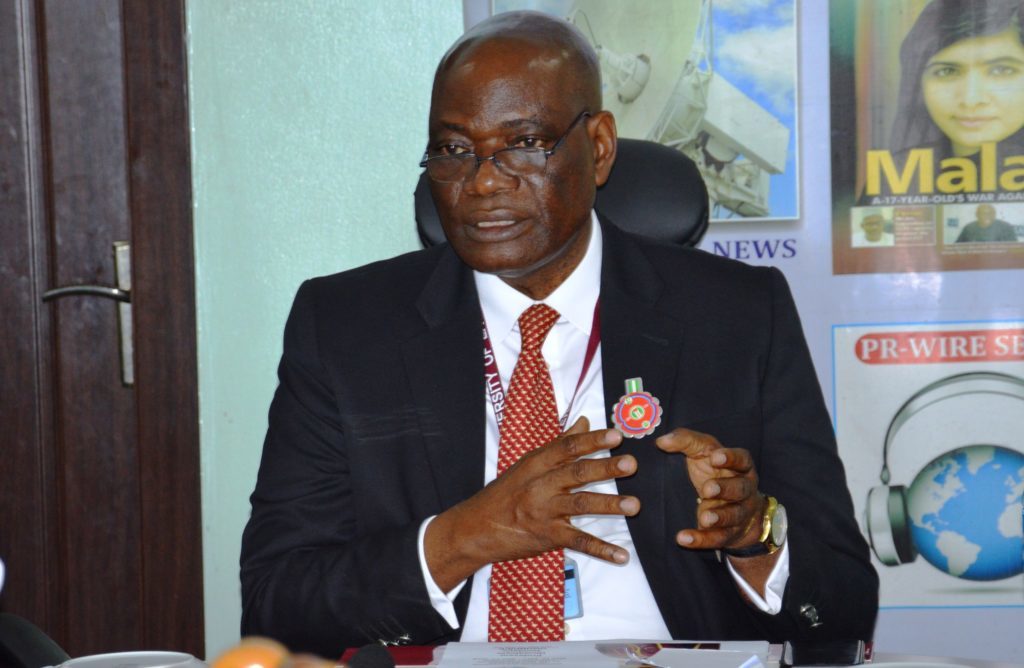POLITICS
UNILAG VC calls for effective measures to address Nigeria electoral challenges

Prof. Oluwatoyin Ogundipe, Vice-Chancellor, University of Lagos (UNILAG), on Thursday urged the Federal Government to provide a viable and effective ecosystem for the conduct of free and fair elections in Nigeria.
Ogundipe made the plea at the Nigerian Institute of Management (NIM) 2019 Colloquium with the theme: “Democracy and the Electoral Process: The Nigerian Challenge” in Lagos.
Speaking as the Guest Speaker, he said that the growth and stability of democracy was largely dependent on the capability and efficiency of the country to conduct violence-free elections.
The vice-chancellor also urged the electoral commission to begin early preparations for the electoral processes to prevent unforeseen circumstances that might disrupt and hamper the process.
“From the foregoing, though the conduct of elections may not equate to the growth of democratic process due to availability of other features of democracy, elections largely contribute to operation and survival of democracy in any given country.
“Preparations for next elections must begin now and not one year to the election as this might lead to issues such as postponement, unavailability of materials, among others,” he said.
Ogundipe said that the 1993 elections had always been viewed as the freest and fairest elections in the political history of Nigeria with the import and consequences beyond the election and electoral process.
He said that the 2015 elections were keenly contested between the All Progressives Congress (APC) and the Peoples Democratic Party (PDP) under conditions that threatened national stability.
“Going forward this year, we celebrated 20 years of unbroken democratic rule, but the last two elections nearly pushed the nation into turmoil and violence that threatened the country’s integration and stability,” he said.
The vice-chancellor outlined challenges of conducting elections and democracy in Nigeria to include: activities of violence, killing, voters intimidation, ballot box snatching and manipulation on the basis of religion and ethnicity.
He listed others as: poverty, literacy level particularly among rural dwellers, inefficient transportation system, corrupt electoral personnel, technology hitches, media inflammatory statement and weak confidence in the electoral tribunal.
Ogundipe recommended the strengthening of electoral legal framework, professional competence and administrative capacity building and increased engagement with stakeholders to tackle the challenges of electoral processes.
He called for the adoption of technology transparency and effectiveness, the need to fight poverty and speedy activities of the National Orientation Agency (NOA) to coordinate strategies for awareness of citizen’s rights in democracy.
“It is imperative for our government to look into the establishment of an institution that will operate as a monitoring group for the electoral commission, political parties and contesting candidates.
“The electoral commission and security institutions must be trained to be professional and impartial in discharging their operations and in contributing to democratic stability in the nation.
“In addition, the Nigerian judicial system needs to be reformed in order to discharge its duties without bias and respect for individuals, ” he said.
Ogundipe appreciated the commitment of the institute to the establishment of a viable platform to discuss national issues and policies by the Colloquium.
The President of the institute, Prof. Olukunle Iyanda, proffered professional and transparent management as solution to addressing the negative characteristics akin to Nigerian electoral process.
Iyanda, also the former Rector, The Polytechnic, Ibadan in Oyo State, suggested that elections could be conducted in a peaceful atmosphere devoid of inter and intra-party rivalry and activities within the Nigerian political structure.
He suggested elections should be conducted in such a way that both the winner and loser would accept results as an expression of the will of the people.
Iyanda reiterated the institute’s commitment to addressing and educating the Nigerian populace on matters of pertinent importance and value to the wellbeing of its citizens.
“Indeed, the period of election is one that threatens and undermines the unity of the country in such a way that one may wish that the country can do away with elections.
“But elections are sine qua non of a democratic system; and so, they cannot be wished away.
“The best we can do is to find a way of reducing, through professional and transparent management, the negative consequences that accompany the processes.




 Davido's Net Worth & Lifestyle
Davido's Net Worth & Lifestyle 
